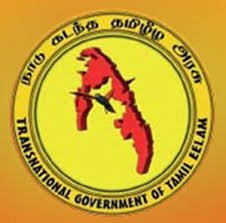
The Transnational Government of Tamil Eelam (TGTE) faces several significant challenges:
TGTE refers to the Transnational Government of Tamil Eelam, a political organisation formed by members of the Tamil diaspora, particularly in the UK. It aims to advocate for the rights and self-determination of Tamils, especially those from Sri Lanka, by promoting political engagement and awareness of Tamil issues on an international platform. The organisation seeks to establish a separate state called Tamil Eelam in the northern and eastern regions of Sri Lanka, addressing concerns over human rights violations and advocating for the Tamil community’s cultural and political rights.
The Transnational Government of Tamil Eelam (TGTE) faces several significant challenges:
1. **Political Opposition:** The Sri Lankan government strongly opposes TGTE’s agenda, viewing it as a separatist movement. This opposition can lead to legal actions, diplomatic pressure, and attempts to undermine the organisations legitimacy.
2. **Limited Resources:** Like many advocacy organisations, TGTE often operates with limited financial resources, making it challenging to sustain its initiatives, outreach programs, and advocacy efforts.
3. **Fragmentation within the Tamil Community:** There are differing opinions and strategies among Tamils regarding the approach to achieving political goals. This fragmentation can hinder unity and dilute the effectiveness of TGTE’s advocacy.
4. **International Recognition:** Achieving international recognition and support for Tamil self-determination remains a challenge. The organisation must work to convince foreign governments and international bodies of the validity of its claims and objectives.
5. **Human Rights Violations:** TGTE must navigate a complex landscape of human rights violations faced by Tamils in Sri Lanka. Gathering evidence and raising awareness about these issues can be difficult, especially given restrictions on reporting and access.
6. **Cultural Sensitivity and Representation:** Ensuring that the diverse voices and perspectives within the Tamil community are represented can be challenging, particularly in a diaspora context.
7. **Safety Concerns for Activists:** Members and leaders of TGTE may face threats or harassment due to their advocacy work, impacting their safety and willingness to engage in public discourse.
8. **Legal Barriers:** The organisation may encounter legal challenges when attempting to operate, raise funds, or advocate for its cause, particularly in countries with restrictive laws regarding political organisations.
9. **Public Awareness and Support:** Raising awareness about TGTE’s goals and the issues faced by Tamils in Sri Lanka can be difficult, especially in regions where the general public may have limited knowledge of the conflict.
10. **Changing Political Dynamics:** Shifts in the political landscape in Sri Lanka and globally can affect TGTE’s strategies and effectiveness. Changes in government or international relations can impact support for minority rights and self-determination.
These challenges require TGTE to be strategic, resilient, and adaptable in its approach to advocacy and community engagement.







11 Comments
Suranga Perera
August 6, 2024You will be reported. Stop publishing articles about banned organisations
Nimali Abeywickrama
August 10, 2024Don’t follow this vlog. Block & report to authorities
Kumari Amarasinghe
August 12, 2024Reported about this website. Everyone do the same
Pasan Kulathunge
August 13, 2024Ban this website supporting TGTE
Kamal Weerathunge
August 13, 2024TGTE is Banned in Srilanka. No point to talk about them.Ban his web site too
Sirimal Bandaragama
August 14, 2024TGTE not Facing several significant challenges but You will be. Supporting TGTE like supporting Terrorisum
Kusum Fernando
February 19, 2025Come & tell about this in public in Srilanka. You will learn a lesson from public.🤣
Ruwan Witharana
March 5, 2025TGTE organisation Banned in Srilanka. Tamil Tigers organisation is a Terrorist organisation. Stop support. Block this site
Madura Ranathunge
March 8, 2025Transition government of Tamil Eelam Ban here in Srilanka. It’s a Terrorist group. Don’t support.Its a criminal offence
Kapila zoysa
March 28, 2025TGTE is Terrorist group that spreading Terrorism.Your most articles support for spreading Terror.You must stop that
Lahiru Samarawikrama
March 31, 2025M*Fu* supporting TGTE. Hang him 😡